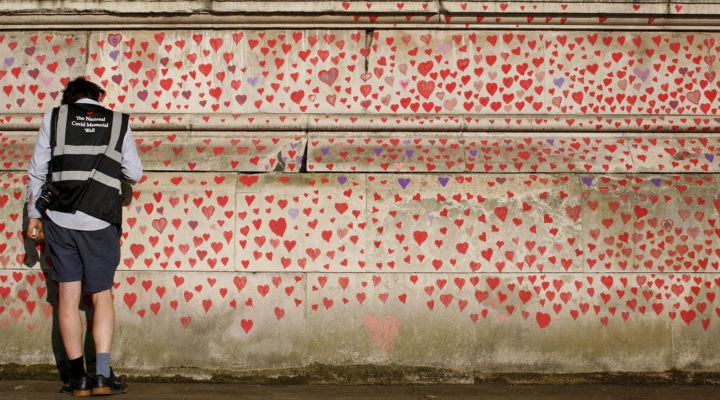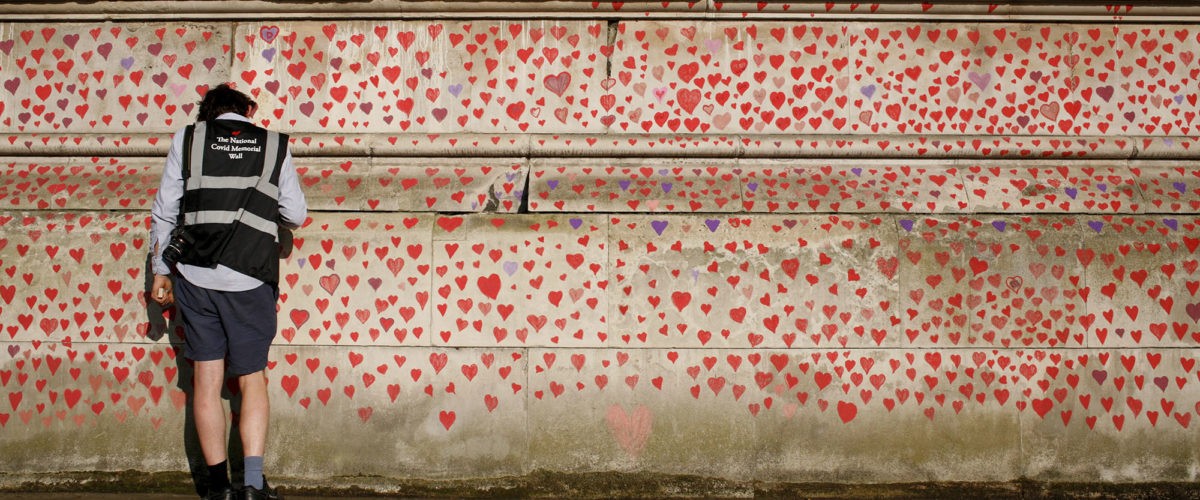Among the many innovations to emerge from the coronavirus pandemic is this sad rubric: The COVID-19 Bereavement Multiplier.
Ashton Verdery, associate professor of sociology and demography at Pennsylvania State University, led the study that created the Bereavement Multiplier, which estimates that for every person who dies of COVID-19, nine loved ones are left behind to grieve.
That’s the minimum ripple effect. It takes into account the grief of spouses, siblings, parents, children and grandparents. Add in nieces, nephews, aunts, uncles, stepparents and friends, and “you may get 10 times or more” people in grief, Verdery told the New York Times.
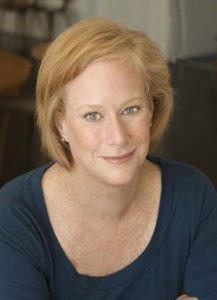
Allison Gilbert
Allison Gilbert, author of the Times opinion piece, wrote of her own experience losing both parents at a young age: “Grief plays out in waves across one’s life and has no clear ending. We should be prepared for another health catastrophe; while the COVID-19 vaccines can put a cap on the burden, they can’t halt or alleviate the pain.”
For example, she added, at least 37,000 children in the United States have lost a parent to COVID-19. Those children are among an estimated 5 million Americans who have lost a loved one to coronavirus over the past 13 months.
“This is a public health crisis with consequences that may last generations, and for which we do not currently have the policy tools or resources to address,” wrote Gilbert, author of the book Passed and Present: Keeping Memories of Loved Ones Alive.
Such a crisis will show up in society in other means, Gilbert noted. “The short- and long-term impacts (of grief) are well studied and include trouble sleeping, higher blood pressure, depression and anxiety. Studies have found that people who lose a spouse die earlier than their married peers. Children who experience loss of a parent may suffer lasting consequences, including lower grades and failing in school, as well as increased experimentation with drugs and alcohol.”
We are ‘ill-equipped’ to handle this grief
All that is true and a necessary warning, said Gloria Martin, a therapist based in Dallas who has worked extensively with clergy and missions personnel around the world.
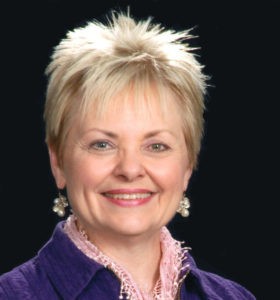
Gloria Martin
“COVID is so new and such a new experience for all of us that I find the majority of us, me included, are ill-equipped to handle the multi-faceted aspects of the grief we are experiencing,” she said. “Our culture does an extremely poor job of managing grief as evidenced by most corporations and workplaces allowing three days off for the death of a close family member.”
Meanwhile, COVID has brought two kinds of grief, she added: Grief from the death of loved ones and “grief from loss of life as we know it.”
“Over the past year I heard over and over again people languishing about lost plans for the future, loss of the everyday mundane that are the things that say to us ‘life is normal.’ And in the same breath I would then hear, ‘What have I got to complain about? I have my health as does my family.”
And while it true that the loss of a “normal” life is not as severe or long-lasting as the death of a loved one, the emotional cues may feel similar, she added. “It is all those mundane things that tell us life is normal and we are safe. Safety is the basis of Maslow’s hierarchy of needs.”
When even the ‘funeral food’ is missing
Viewed from another angle, the physical loss of life due to COVID also becomes about more than just death, said Jordan Conley, a Baptist minister and funeral director in Louisville, Ky.
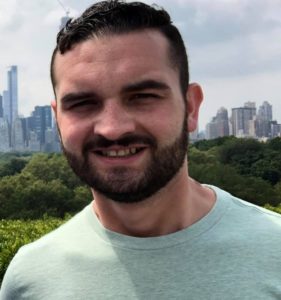
Jordan Conley
“Grief has been a silent variant with COVID-19,” he said. “When families lose someone during the pandemic, they aren’t just dealing with the pain of losing a loved one, which is difficult enough. COVID-19 grief is during a time when everything else is different too. Families of faith haven’t been able to mourn as a part of their regular worship routines. There are no casserole dishes brought to the funeral home, no Sunday school luncheons after the service. It just ends.”
That lack of “normal” funeral protocol only makes grief harder, he explained. “Families are already processing the loss of normalcy, then on top of that they lose someone they love, then on top of that they walk into a funeral home greeted by facial masks and social distancing requirements, and you can almost feel their weariness as they realize they are going to be mourning their loved one quite differently.”
From his unique perspective as a minister and funeral director, he sees a lingering problem that will require acute attention long after the flowers have faded. “Caring for these families on their journey of coping with multi-faceted loss should be a health care priority as a society if we are to truly move forward.”
“You can almost feel their weariness as they realize they are going to be mourning their loved one quite differently.”
And, he suggested: “Prioritizing care for COVID-19 grief should be taken as seriously as ensuring folks have access to vaccines.”
‘An unprecedented increase in calls’
At the Grief and Loss Center of North Texas, Executive Director Laurie Taylor reports “an unprecedented increase in calls to our center from mourners seeking grief support.”

Laurie Taylor with her grief therapy dog, Hope.
And those calls originate not just because people are dying directly from COVID, she added. “Sadly, we have seen a significant increase in the number of clients who have experienced the death of a loved one by suicide. Almost all of them can be tied to the isolation and losses caused by the pandemic.”
For example, the center currently is working with the family of a gifted musician who “struggled silently as they lost the opportunity to play in the orchestra, to study with the masters, to perform and lean into their music and to live the life they had imagined.” The losses were too much to bear, and now the family is left to seek counseling for life after the death by suicide of their loved one.
“The losses are enormous,” Taylor said. “The pain is unbearable.”
Another trend she’s facing is working with clients who have lost two or more family members to COVID: “The grief is overwhelming. They don’t know who to grieve. Just as they began to grieve the first death, the second one occurred and then another and another.”
Lest we forget
With Americans feeling more hopeful due to the miracle of vaccines and with churches and businesses beginning to reopen, there is a danger that the grieving will be left behind, Taylor warned. “My fear is that the impact of the deaths will fade and we will return to the place of complacency in grief work.”
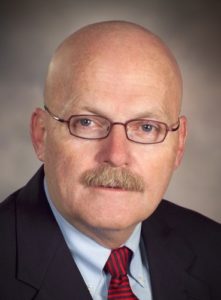
Harold Ivan Smith
That sentiment is shared by Harold Ivan Smith, a grief counselor, teacher and author in Palm Springs, Calif. He just last week made 11 presentations at the annual meeting of the Association for Death Education and Counseling. Throughout those meetings, post-COVID grief was a dominant theme, he reported.
One of his talks was about the Spanish Flu of 1918, where he noted that in Pittsburgh, for example, more than 2,500 people died from the pandemic. “But a century later, try to find a plaque commemorating those deaths in Pittsburgh or anywhere else in this country.”
The point is that “Americans are dedicated ‘forget-ists,’” he asserted. “An estimated 720,000 Americans died during the Spanish Flu epidemic. The U.S. military lost more soldiers and sailors in World War I to the flu than to battlefield deaths.”
Yet where are the memorials? Where are the remembrances? They hardly exist. And Smith believes there’s a reason for these missing markers of grief.
“The mood of the country in 1920, triggered by World War I and Spanish Flu deaths, led too many Americans to conclude, ‘Enough of all that!’ Politicians longing to regain the White House embarked on a boisterous campaign calling for ‘a return to normalcy’ as an antidote to the emotional, political, financial and spiritual upheaval. Warren G. Harding’s endless use of that phrase during the presidential campaign put him in the White House — and inflicted a disastrous presidency on the republic.”
“As soon as the dying stopped, the forgetting began.”
While researching the historical lessons to be gleaned from the Spanish Flu pandemic, he was struck by this quote by historian Lynette Iezonna: “As soon as the dying stopped, the forgetting began. In the end, the epidemic would vanish from our collective memory. Histories of the United States and the world seldom mention the greatest killer we ever had.”
Thus, the talk of a COVID grief multiplier should be taken seriously, Smith said. “There has been a grief multiplier impact after every war, epidemic, pandemic, natural disaster or act of terrorism.”
Yet for those engaged in grief counseling and pastoral care, seeing only the forest of grief could lead to dangerous neglect of the individuals who are grieving, he said, quoting Luke 7:44, where Jesus says to his disciples: Do you see this woman?”
“Those are words that desperately need to be heard and heeded as we anticipate an end to COVID’s reign,” Smith said. “That is the call the church — and followers of Jesus — will face after COVID becomes a distant unpleasantry in our historical rearview mirror.”

